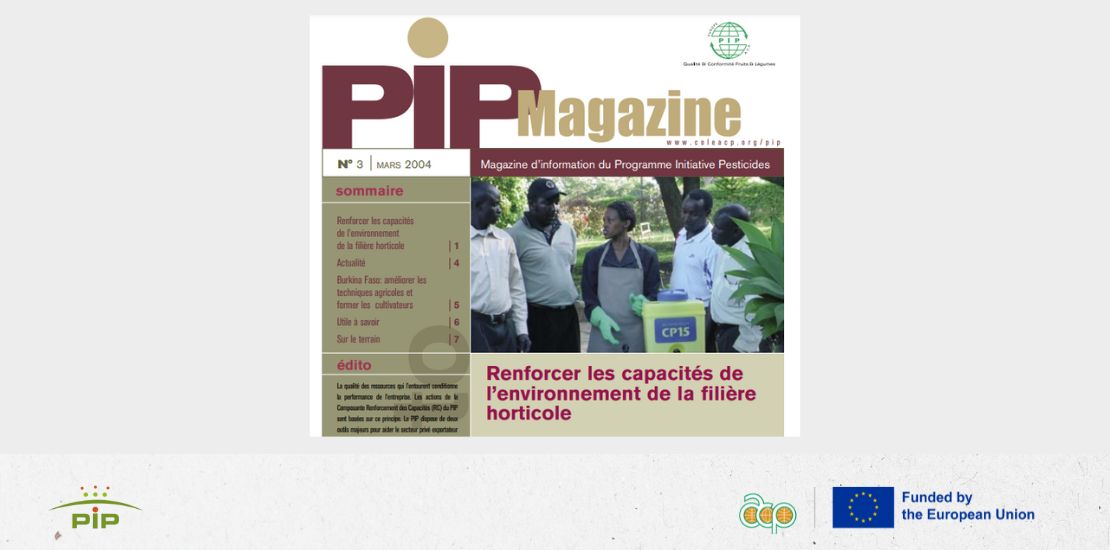- 29/08/2024
- Posted by: Sandra Borma
- Category: News

Flashback 2004 : “Building the capacity of the horticulture sector’s support structures”
(Source : COLEACP PIP magazine n°3, March 2004)
“ACP producing/exporting states are generally endowed with considerable local expertise and knowledge in a variety of areas. However, these countries often lack structures which are adequately informed and trained. While it is important to help companies prove their day-to-day control of the production and export process, it is equally important to improve the quality of the support and services provided to them by local partners.
The capacity building activities carried out by PIP with its private and public partners are meant to help sectors find economically viable solutions to their problems at the local level and to improve the capacity of stakeholders in the ACP horticultural sectors to anticipate these problems. Depending on the needs that PIP beneficiaries have identified, support programmes adapted to those needs are set in place to enhance the quality of services provided to ACP production and export companies. Within this perspective and according to the PIP’s intervention principles, the private sector constitutes the programme’s preferred partner. In Kenya, for example, the PIP provides support to two types of consultants, one in the area of instructor training, and the other in improving Integrated Pest Management (IPM) techniques. In Senegal, PIP support has focused on improving the skills of local consultants, who, thanks to this intervention, have become the programme’s main training relays for the entire sub-region. “Some of these partners, whether private or public, look set, depending on needs, to become PIP relays in disseminating information and implementing training programmes. It is important to point out that a structure can only be considered a potential relay if its long-term viability seems guaranteed. In other words, it must be able to operate independently of the programme, so as to be able to relay the actions developed, beyond the lifespan of the PIP”, explains Harry Lugros, head of the PIP Capacity Building component.”





